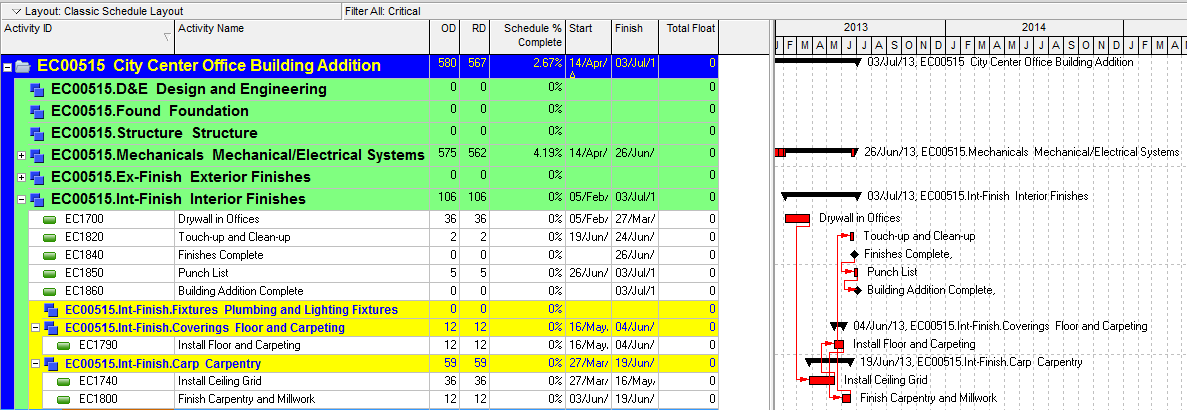
Definition of the Role
Planning and Scheduling is a discipline focused on the development and maintenance of project plans, usually involving critical path method planning.
Planning is concerned with the definition of activities or tasks in a schedule, their logical sequencing and by use of resource planning, determining the duration of the activities.
Scheduling is the process of statusing an already planned schedule by taking a snapshot of the project at a particular date and time and recording progress, recalculating the schedule, analysing and reporting the revised status.
Description of Role Typical Responsibilities
A career in Planning & Scheduling usually starts after initial training in the discipline and the use of a particular planning software application.
Scheduling is the entry point to the discipline. It requires learning how to status an already-developed project plan. This involves progressing the date at which the project status is being assessed (the data date) and determining whether each task has started and finished, or is started and, if so, the time remaining until it will be finished and the percentage complete the work described by the task is.
As experience is accumulated, skills in planning are acquired, to enable the scheduler to take on the responsibilities of developing project plans, by defining activities, sequencing them into their logical order of execution and determining the durations of the tasks. This requires development of the capacity to estimate and plan the use of resources, taking into account constraints on the use of resources, access to work faces, etc.
How to become a Practitioner
Planning & scheduling careers usually start from the discovery that project planning is an enjoyable process, whether discovered during an educational course or when required to plan or status activities in the workplace.
It is important to learn critical path method theory and understand the planning process as well as how to use planning software. Planning & scheduling jobs are usually advertised in relation to competence in the use of particular software applications. Experience can be gained using particular planning software, usually in a field closely aligned with the person’s original training or profession.
Increasingly, employers look for evidence of knowledge and capabilities in the project planning process. This can be obtained through certifications such as AACE International’s Planning & Scheduling Professional (PSP, see https://web.aacei.org/certification/certifications-offered/professional-certifications). Eligibility to apply for this depends on 8 years industry experience or 4 years industry experience and completion of a four year industry related university degree. Recommended study materials are listed. Candidates sit an examination for a maximum of 5 hours.
Other professional organisations offer certifications, including:
- Project Management Institute (PMI-SP, see https://www.pmi.org/certifications/types/scheduling-sp).
- Guild of Project Controls (PS, see http://www.planningplanet.com/guild/certification). The Guild recognises different levels of capability in their certification
ACES, as a Technical Society of Engineers Australia is able to facilitate Chartered Engineer status based on career expertise in project controls, including Planning & Scheduling. See Chartered Engineer page of this site for more information.

